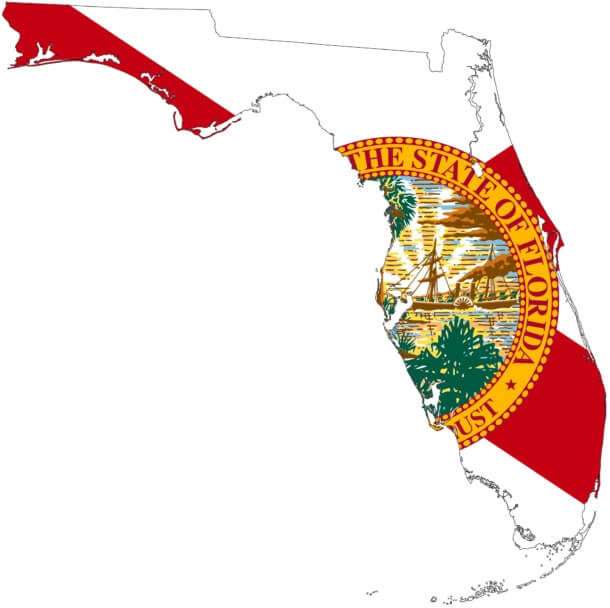Bionic Mosquito writes:
I am uncertain as to what libertarianism means if it does not allow for individuals to exercise control over their life and property. This would inherently mean – to the extent possible in an imperfect world – that individuals would be free to choose from any available option of governance / governing structures, or create their own if they are able.
“If they are able”…of course, we know that those who currently govern such free thinkers will not be very agreeable to letting their cattle go free….
We also know that more choices in governance units increase the possibility that each individual finds one closer to his choosing. Simple math.
Which kind of already answers the question regarding a libertarian view on secession. You can stop here if you like.
—————————–
Over the course of recorded history, borders have come and borders have gone; the number of governance units has ebbed and flowed – sometimes more, sometimes less.
In many ways, the world has moved toward the “sometimes less” end of the spectrum over the course of many centuries. But this has changed recently: the USSR, Yugoslavia, Czechoslovakia – out of these three, now perhaps twenty. And it remains in flux: Brexit being a key event; the clear sentiment of many Americans and Europeans to withdraw from globalism being another.
One thing seems clear – when we move toward the “sometimes less” end of the spectrum, we move toward ever-greater centralization, ever-fewer options to find a governance unit under which one might find reasonable liberty, governance conditions closer to their ideal. Instead, we move toward an all-powerful, one-world, state.
Some like to think that such an outcome is the best guarantor of liberty. Such as these are amongst the most naïve or wishful (or devious) among us.
I suggest that reason leans the other way: more choice equals more possibilities for each individual to find the liberty of his choosing. After all, liberty (the non-aggression principle) only offers a singular negative right; it says nothing of the type of society in which one might choose to live.
Hence, it strikes me that the libertarian must support every movement toward decentralization. After all, who are you to say what another finds agreeable in terms of the type of society and under what property arrangements in which the other might choose to live? Value is subjective, and central planning does not fall within the libertarian tent.
—————————–
So, Catalunya held a vote. In my earlier post on this topic, I contrasted my views with that of a libertarian who suggested that this vote should not be supported; that if Catalunya wished to secede, the region should get permission from the entity (Spain) from which it wanted to secede.
I promised this subsequent post – in order to assess the nature of Spain’s response.
From the New York Times:
Catalonia’s defiant attempt to stage an independence referendum descended into chaos on Sunday, with hundreds injured in clashes with police…
An outcome that was promised and knowable.
National police officers in riot gear, sent by the central government in Madrid from other parts of Spain, used rubber bullets and truncheons in some places as they fanned out across Catalonia…
More than 750 people were injured in the crackdown…
Now…what were the people doing other than peacefully voting? Why would the state want to physically assault those who chose this method of raising their voices? Is there something libertarian about this state action?
“You simply can’t use violence against people who just want to vote.”
So says Mario Pulpillo, age 54. As do I.
It was just a vote, one of the few peaceful ways possible for people to voice their opinion. Why would libertarians oppose this (other than, I guess, those who are philosophically opposed to voting)? Why would libertarians oppose this, knowing the government’s methods of dealing with those with whom the government disagrees?
The Madrid government, with the backing of Spanish courts, had declared the referendum unconstitutional and ordered the vote suspended.
What is libertarian about this position, the position taken by the Madrid government?
Prime Minister Mariano Rajoy, at a news conference Sunday evening, characterized the police actions as a proper and measured response to the acts of secessionists.
Of course he would say this. Knowing what libertarians should know about the actions that a determined government would take against its enemies, why would any libertarian advocate against this vote?
“If there is something to conclude from today, it is the strength of Spain’s democratic state,” Mr. Rajoy said on Sunday.
Wait a minute…if a state felt strong in its democracy, why would it fear a vote? This is not the action of the strong and confident; it is the action of the weak and fearful.
And…so you don’t think I lose sight of my purpose…why, if the vote comes out for secession, does a libertarian feel justified in telling those who want a different form of control over their life and property that they cannot have it? Because the only way to prevent this is…well, ask Rajoy. He will show you.
The Catalan vote has been watched with rising trepidation — and no sign of support — by a European Union wary of stoking forces of fragmentation already tugging at the bloc and many member states…
Do you think the EU supports secession? Do you think the EU favors that each individual has more control over his life and property, in the manner of his own choosing? Do you think the decentralization away from Brussels would increase the possibilities of control over life and property for those living in Europe?
There is good news to be found:
“Today, the Spanish state has lost a lot more than it had already lost, and Catalan citizens have won a lot more than they had won until now,” [the leader of Catalonia, Carles Puigdemont] said.
Although in a very different manner, I find this reaction by Rajoy to have the same effect as Hillary’s “the deplorables” comment: it really energizes those who were on the fence to get off the fence and on to the other side.
Continue: bionic mosquito: Secession


